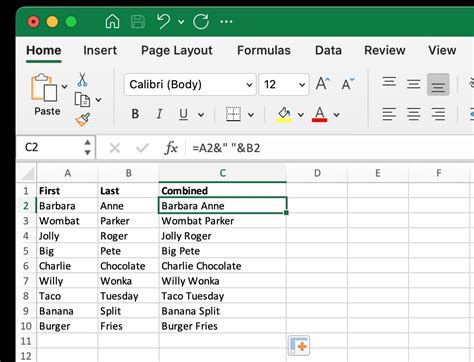Become a Heavy Equipment Operator: High-Paying Career Guide

Introduction to Heavy Equipment Operation
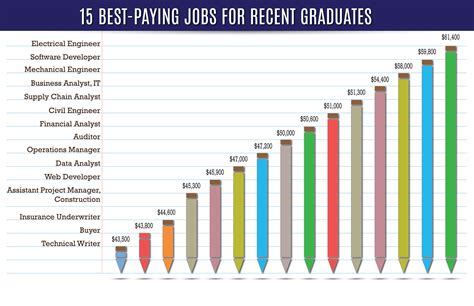
Are you looking for a high-paying career that involves working with heavy machinery? Do you enjoy working outdoors and taking on physically demanding tasks? If so, becoming a heavy equipment operator may be the perfect career path for you. Heavy equipment operators play a crucial role in various industries such as construction, mining, and infrastructure development. In this article, we will guide you through the process of becoming a heavy equipment operator and provide you with an overview of the job requirements, salary range, and growth opportunities.
Job Requirements and Responsibilities
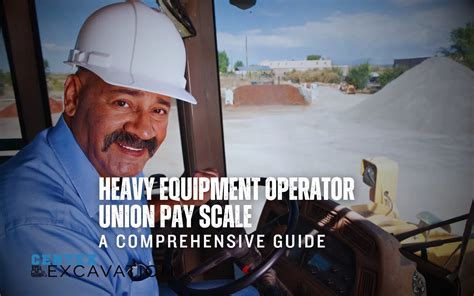
As a heavy equipment operator, your primary responsibility will be to operate and maintain heavy machinery such as cranes, bulldozers, excavators, and forklifts. Your duties may include:
- Operating heavy equipment in a safe and efficient manner
- Conducting routine maintenance checks on equipment
- Performing repairs and troubleshooting when necessary
- Collaborating with other team members to achieve project goals
- Following safety protocols and regulations
- Working in a variety of environments, including outdoor and indoor settings
Types of Heavy Equipment Operators

There are several types of heavy equipment operators, each specializing in a specific type of equipment. Some of the most common types of heavy equipment operators include:
- Crane Operators: Responsible for operating cranes, hoists, and other equipment used to lift and move heavy loads.
- Bulldozer Operators: Operate bulldozers, graders, and other equipment used for earthmoving and grading.
- Excavator Operators: Operate excavators, backhoes, and other equipment used for digging and excavation.
- Forklift Operators: Responsible for operating forklifts and other material handling equipment.
Education and Training Requirements
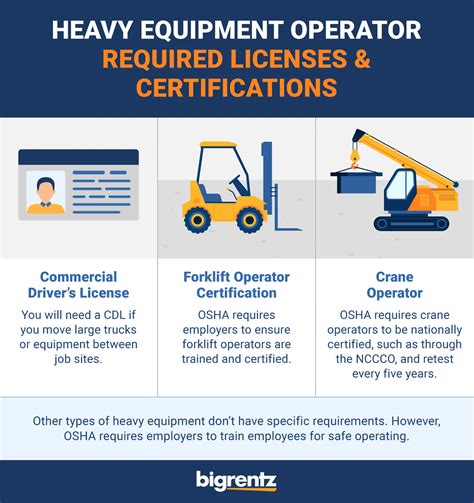
To become a heavy equipment operator, you typically need to complete a training program and obtain certification. Here are the steps to follow:
- Complete High School: A high school diploma or equivalent is required to enroll in a heavy equipment training program.
- Enroll in a Training Program: Look for a training program that is accredited by the National Center for Construction Education and Research (NCCER) or the International Union of Operating Engineers (IUOE).
- Complete an Apprenticeship: Many training programs include an apprenticeship component, which provides hands-on experience and on-the-job training.
- Obtain Certification: Obtain certification from a recognized organization, such as the NCCER or IUOE, to demonstrate your expertise and knowledge.
Salary Range and Growth Opportunities
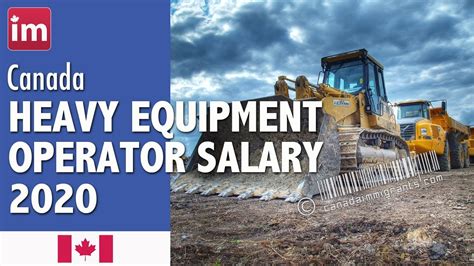
Heavy equipment operators are in high demand, and the salary range is competitive. According to the Bureau of Labor Statistics (BLS), the median annual salary for heavy equipment operators is around 50,000. However, experienced operators can earn upwards of 80,000 per year.
- Entry-Level Salary: 40,000 - 50,000 per year
- Experienced Salary: 60,000 - 80,000 per year
- Senior Salary: 80,000 - 100,000 per year
The growth opportunities for heavy equipment operators are excellent, with the BLS predicting a 10% increase in employment opportunities from 2020 to 2030.
How to Get Hired as a Heavy Equipment Operator
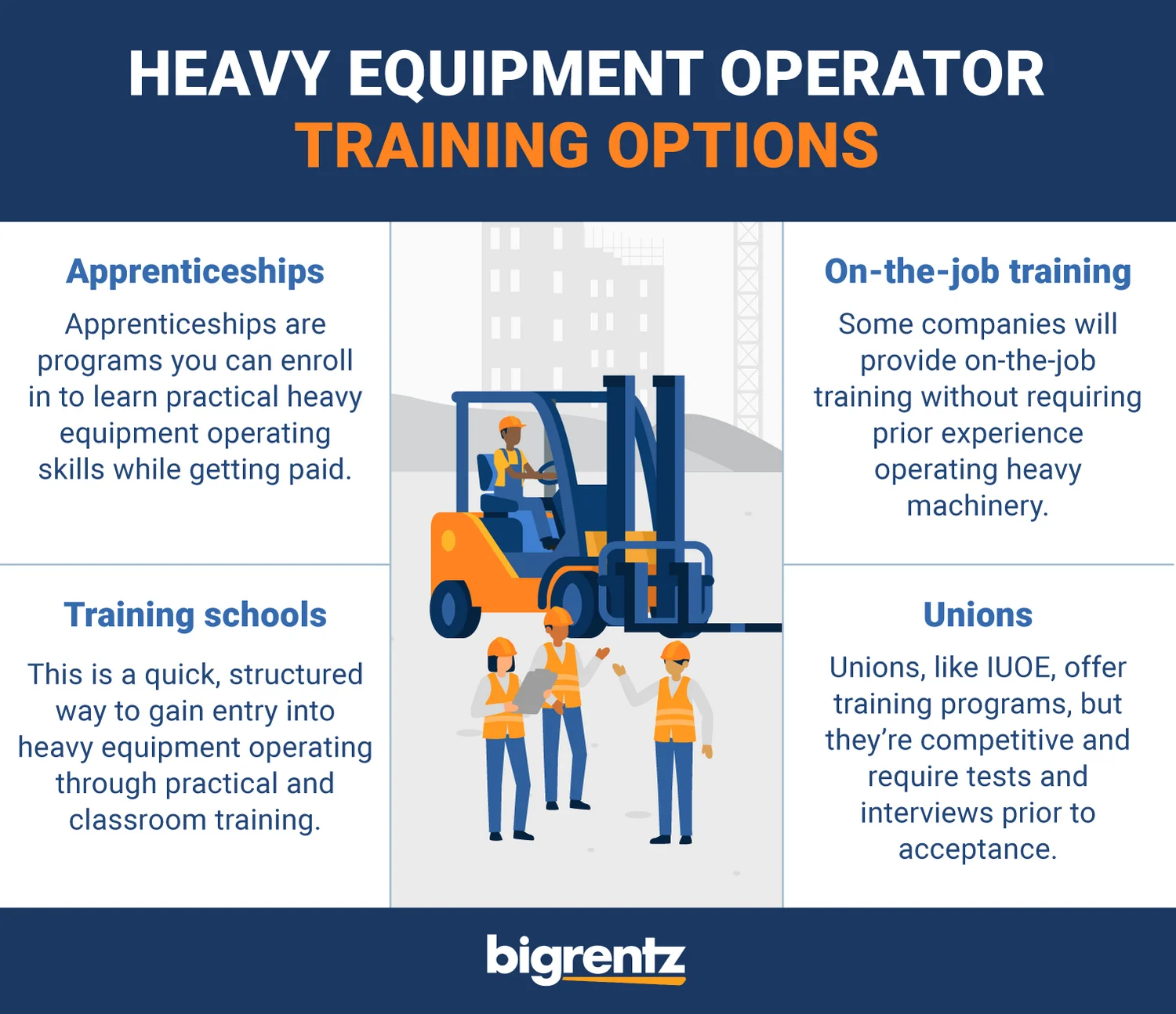
To get hired as a heavy equipment operator, follow these steps:
- Update Your Resume: Ensure your resume is up-to-date and highlights your training, certification, and experience.
- Practice Your Skills: Practice operating heavy equipment to gain experience and build your confidence.
- Network: Network with other heavy equipment operators and industry professionals to learn about job opportunities.
- Apply for Jobs: Apply for job openings at construction companies, equipment rental companies, and other organizations that hire heavy equipment operators.
💡 Note: Consider obtaining a commercial driver's license (CDL) to increase your job prospects and salary range.
Conclusion

Becoming a heavy equipment operator requires specialized training and certification. With the right training and experience, you can enjoy a high-paying career with excellent growth opportunities. Remember to update your resume, practice your skills, and network with industry professionals to increase your chances of getting hired.
What is the average salary for a heavy equipment operator?
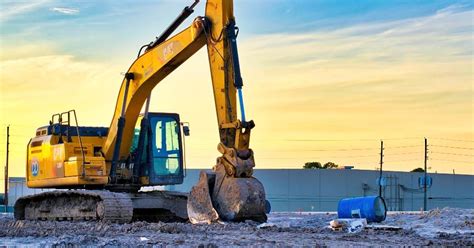
+
The average salary for a heavy equipment operator is around $50,000 per year, according to the Bureau of Labor Statistics.
Do I need a college degree to become a heavy equipment operator?
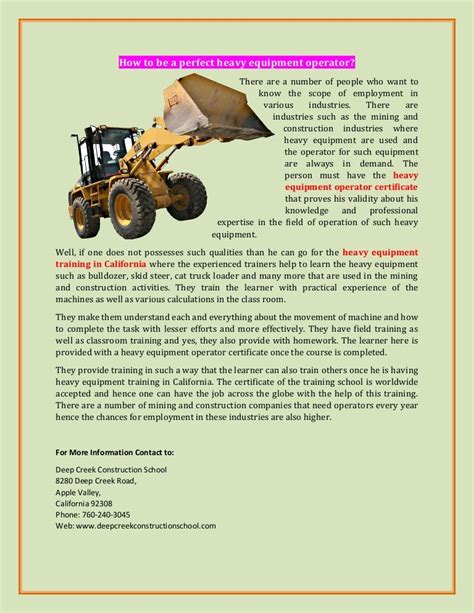
+
No, a college degree is not required to become a heavy equipment operator. However, you typically need to complete a training program and obtain certification.
What are the most common types of heavy equipment operators?
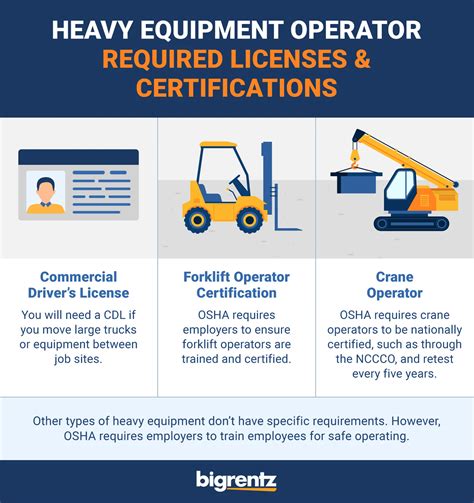
+
The most common types of heavy equipment operators include crane operators, bulldozer operators, excavator operators, and forklift operators.

